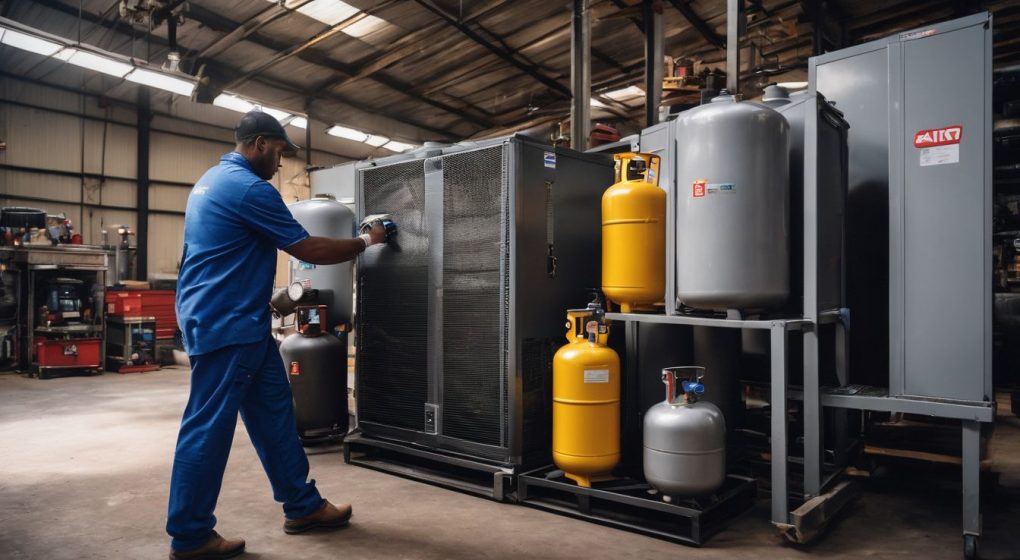
Aircon gas makes your air conditioner cool and work well. It’s like the heart of your AC system! Some gases are better for our planet because they don’t harm the air so much. When you choose this special gas, think about how cold it can make a room, if it saves power, and its cost.
The right guarantee is important too. Now, there are different kinds of gases used in ACs like R-410A and R-22, and each has its own benefits.
There are also various types of air conditioners to pick from. Small window units fit tight spaces while big central systems can cool a whole house! If you only want to chill one spot without any fuss with ducts, a mini-split could be perfect for you.
And if you move around a lot or rent your place, then portable ones might be just what you need.
It’s smart to look at how much space you have and where heat comes from in your home before picking an AC. Having the right size unit matters because it helps save on energy bills! Remember that some models barely make noise too.
With clever tips to use less electricity, your AC will not only keep costs low but also help look after our world for longer. Let’s keep cool wisely by learning all about choosing the best aircon gas for our needs! Keep reading; we’ll show you how easy it is to get started.
Understanding the Importance of AC Refrigerants
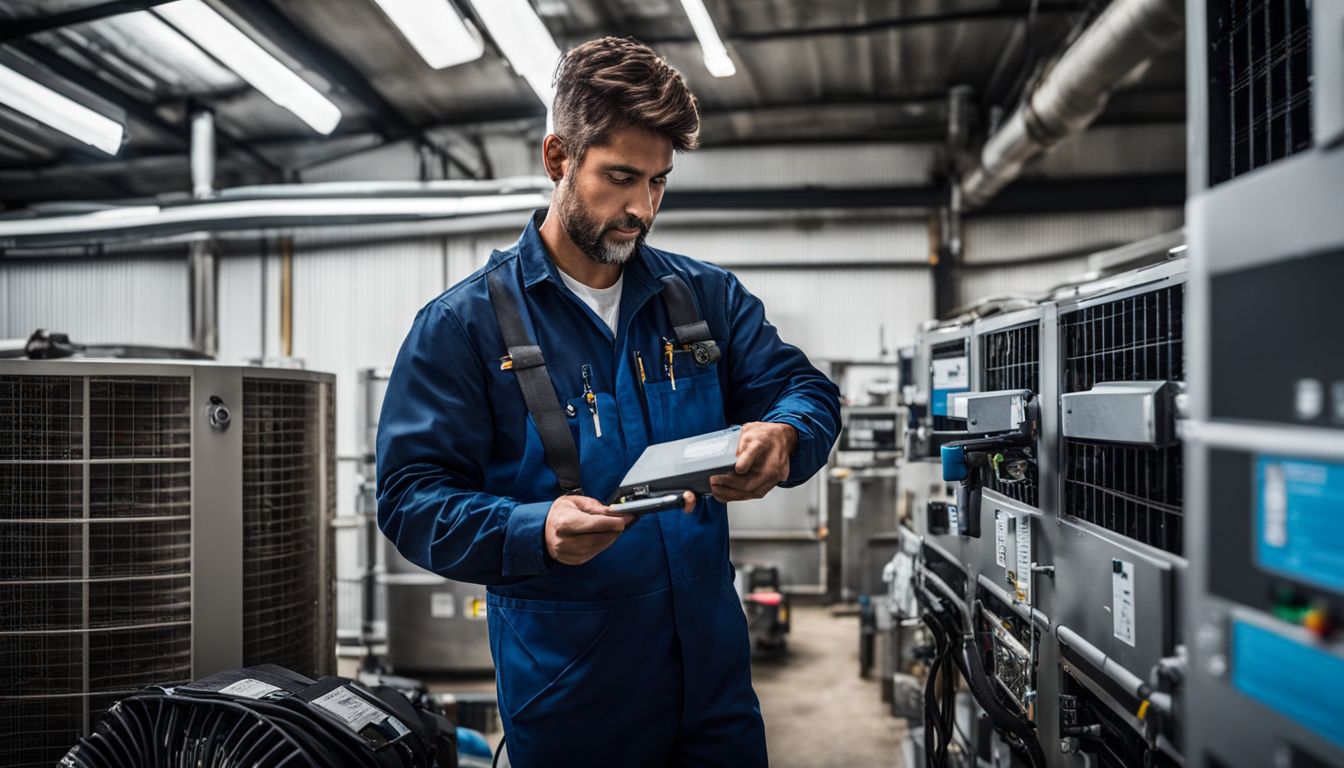
AC refrigerants are the lifeblood of your air conditioning system, playing a critical role in heat transfer to keep your home comfortably cool. Delve into their functions and the various types available to make an informed decision for optimal climate control.
The Role of AC Refrigerants
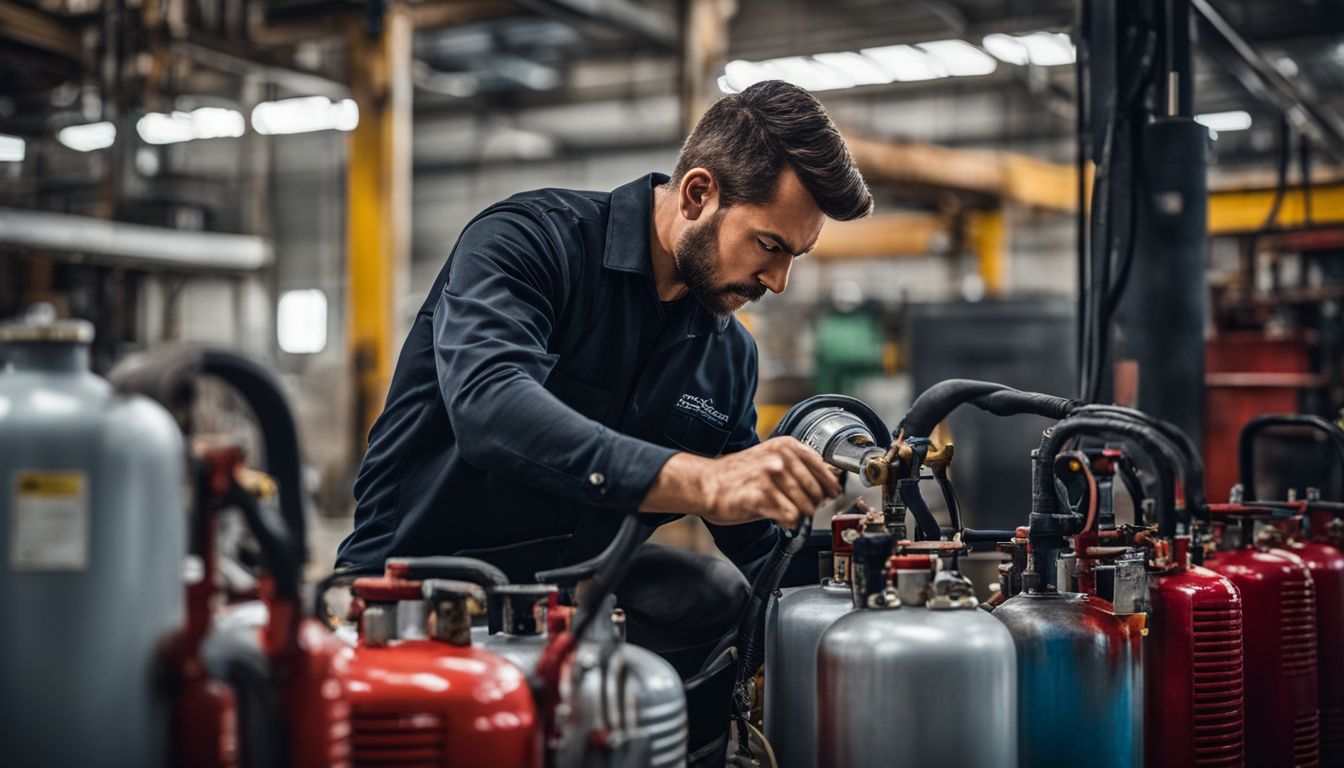
AC refrigerants are key to how air conditioners keep your home cool. They flow through coils, absorbing heat from inside and then releasing it outside. This cycle repeats over and over to maintain a comfortable temperature within a room or building.
The type of gas used can change the system’s efficiency, impacting your energy bills and comfort levels.
Not all gases work the same way in cooling systems. Some can harm the environment more than others if they get out into the air. It is crucial to choose a refrigerant that does less damage to our planet while still keeping your space nice and cool.
– Types of AC Refrigerants
Types of AC Refrigerants
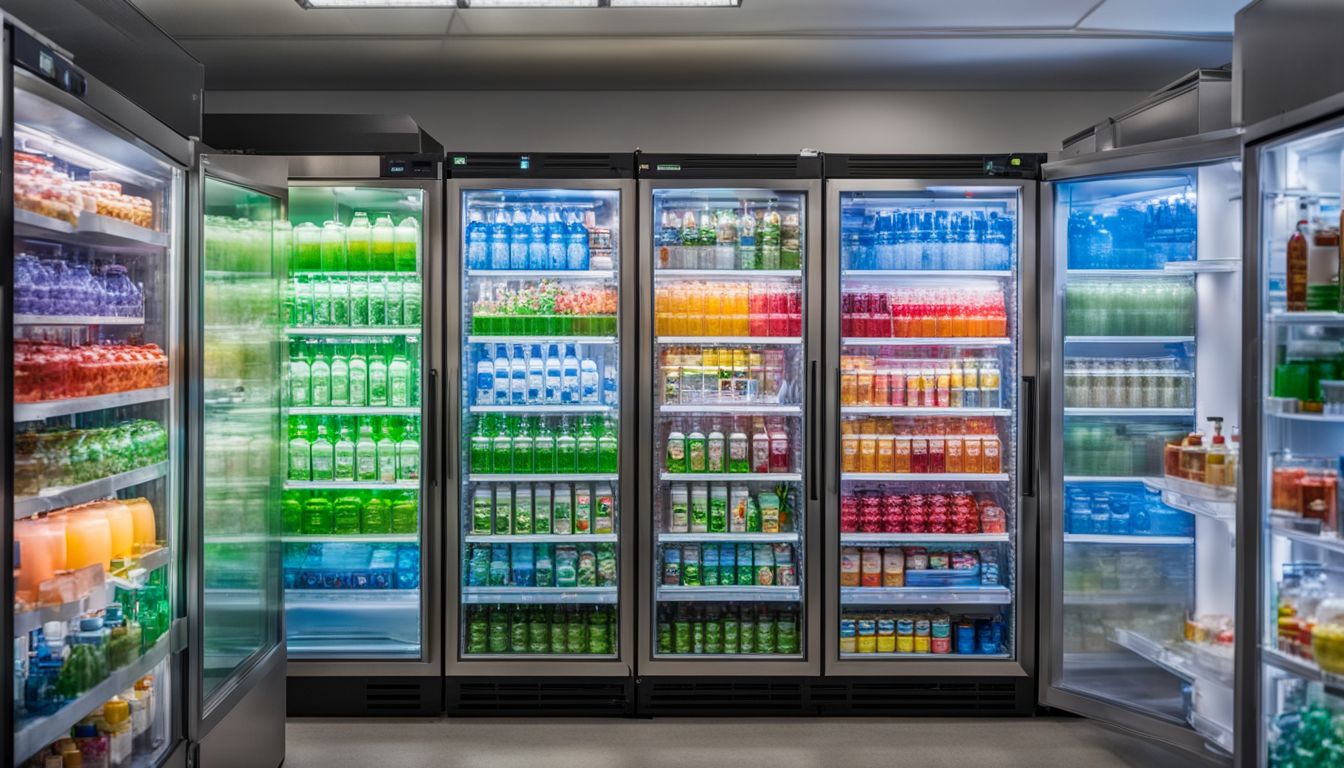
- Chlorofluorocarbons (CFCs), including R-12: These are older types of refrigerants that harm the ozone layer. They’re not used much nowadays because they contribute to global warming.
- Hydrochlorofluorocarbons (HCFCs), such as R-22: Less harmful than CFCs but still cause damage to the ozone layer. They are being phased out in favour of more eco-friendly options.
- Hydrofluorocarbons (HFCs), including R-410A and R-134a: These don’t deplete the ozone layer but can still add to greenhouse gas emissions. They are common in newer air conditioning units.
- Hydrocarbons (HCs), like R-290 and R-600A: Known for high energy efficiency, they have a low impact on global warming. These refrigerants are gaining popularity in energy-efficient systems.
Key Factors to Consider When Choosing Aircon Gas
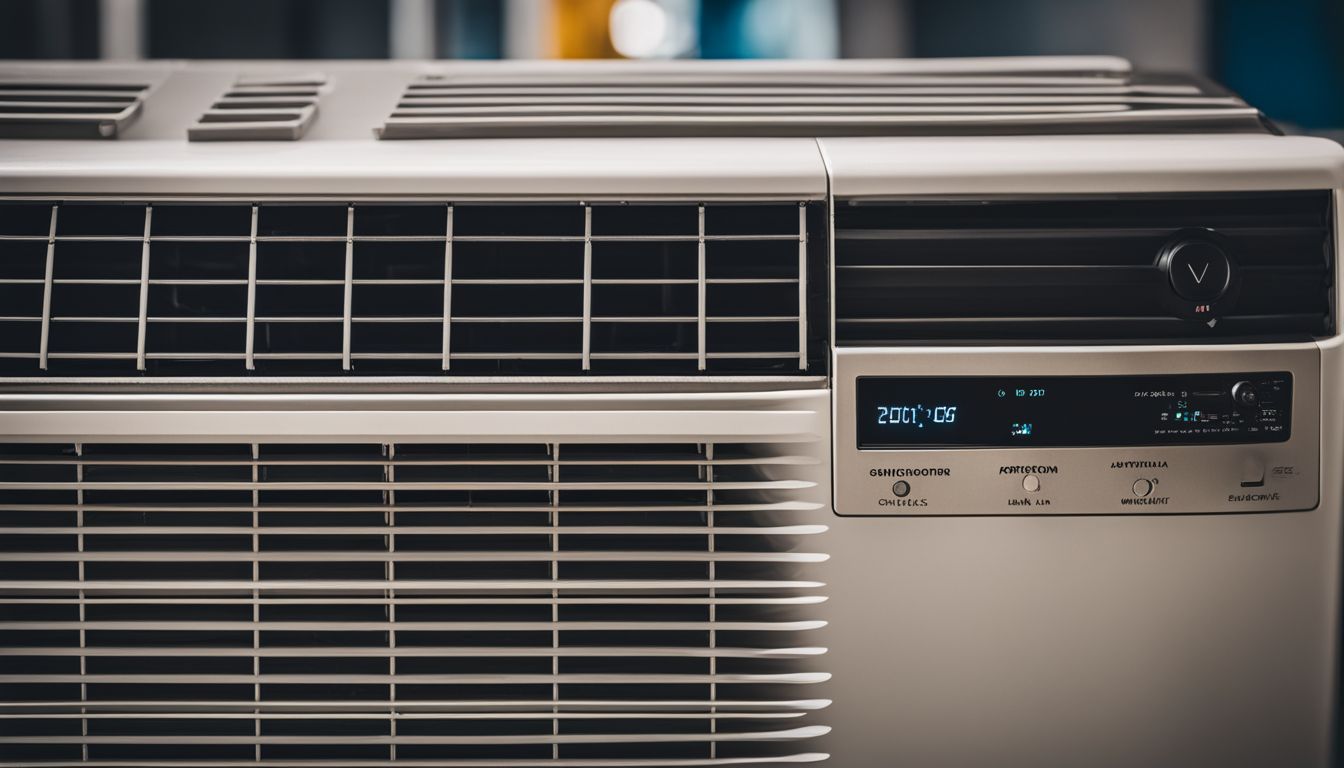
Selecting the appropriate aircon gas is crucial for optimal performance and environmental sustainability; consider a blend that not only delivers efficient cooling but also aligns with energy regulations.
This choice impacts everything from your indoor climate control to your carbon footprint, underscoring the need for an informed decision tailored to both personal requirements and broader ecological considerations.
Cooling Capacity
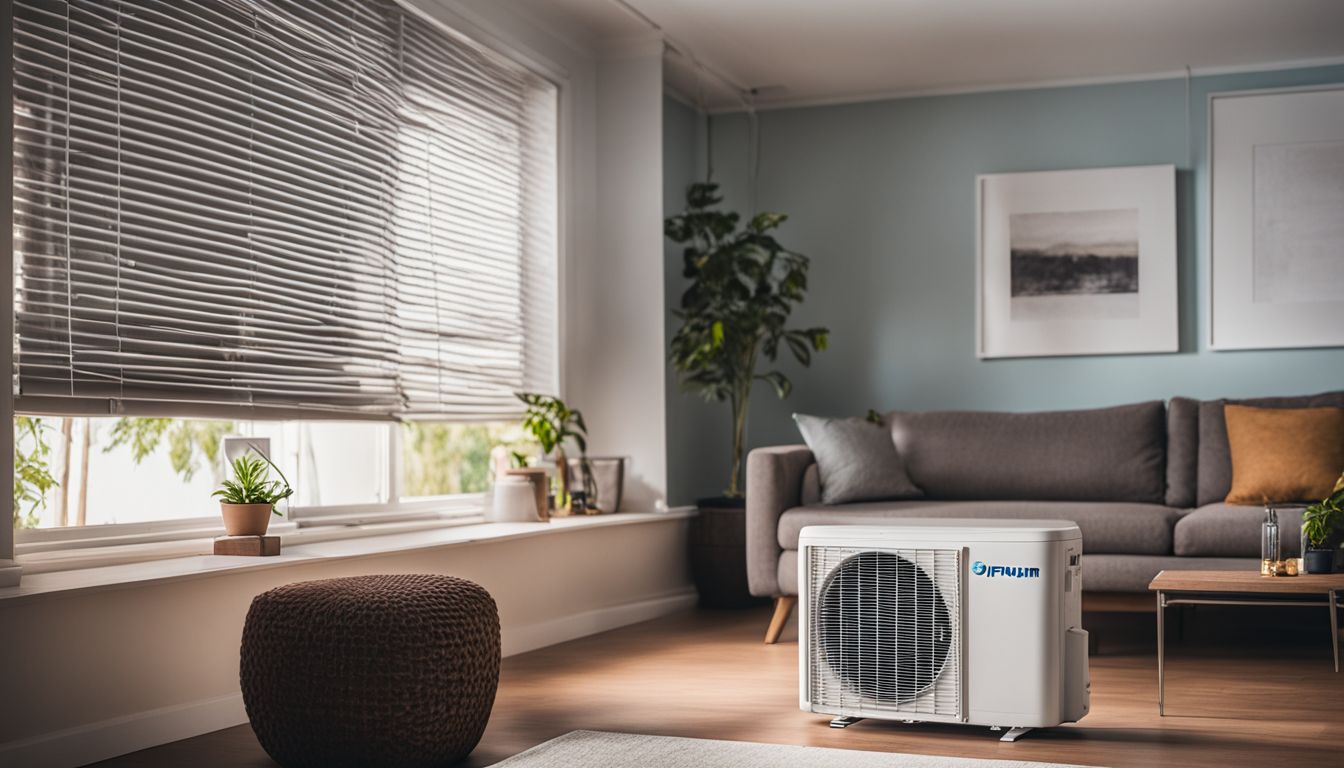
Cooling capacity is crucial for your air conditioner’s effectiveness. It tells you how much heat the unit can remove from a room and is measured in British Thermal Units (BTUs). To get comfortable cooling without wasting energy, choose an aircon with a BTU level that fits your room size.
Aircons with too high BTUs will cycle on and off too often. This wastes power and can wear out the system faster. A unit with too low BTUs will keep running without properly cooling the space.
Make sure to match the aircon’s cooling capacity with your room to enjoy efficient temperature control and lower energy costs.
Energy Efficiency
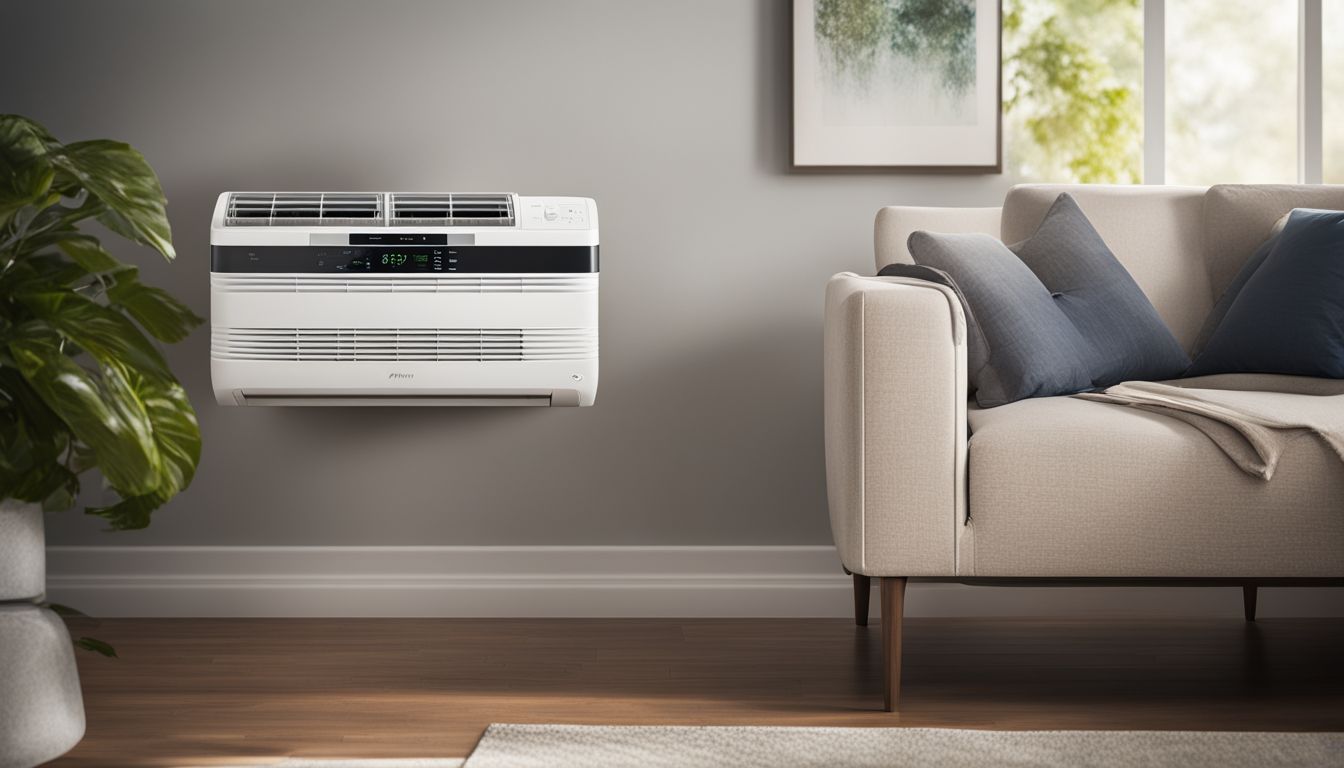
Besides considering cooling capacity, another crucial factor is energy efficiency. This measure tells you how well an air conditioner turns electricity into cooling power. Look for systems with a high Energy Efficiency Ratio (EER) or those tagged as ENERGY STAR certified; they use less power to cool your space.
Advanced models like inverter air conditioners adjust their work rate to maintain the desired temperature, which means more energy savings.
Lowering energy consumption should be a top priority when choosing an AC gas. Smart features in HVAC units can track and manage how much energy they use. For instance, some have programmable thermostats that cut down unnecessary cooling when you’re not home.
Proper maintenance also keeps systems efficient over time – without it, your AC might work harder and use more electricity than needed.
Noise Level
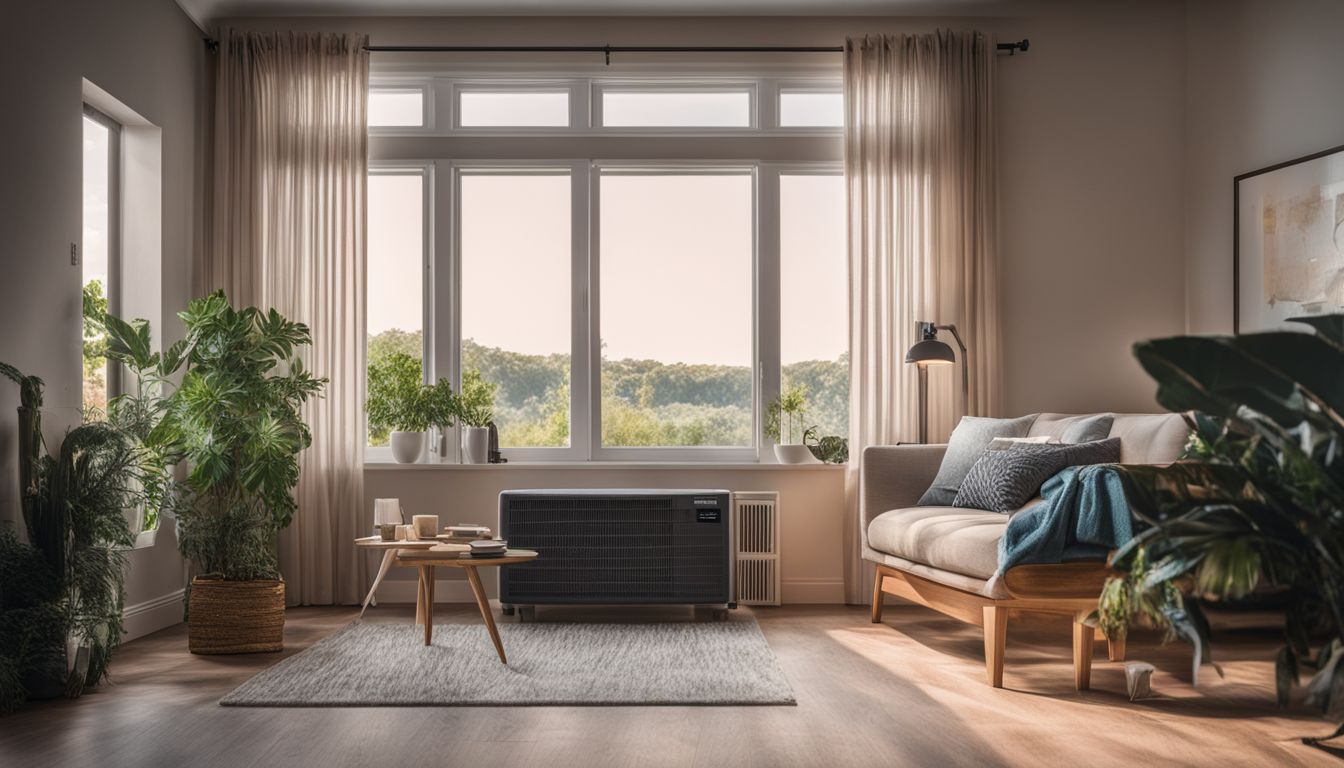
Air conditioners can be loud, but inverter models make less noise. They change how fast their compressors run. This means they get quieter when cooling less. Good home materials like copper pipes cut down on sound from your aircon.
Well-fitted insulation and sealed windows also keep the noise low.
A professional should install your AC to ensure it’s not too noisy. Regular checks and clean-ups keep it running smooth and quiet. Smart thermostats help, by making sure it works just right for you.
If you pick an air conditioner that fits your space well, it will run better and make less noise too.
Cost
After considering how quiet you want your AC to be, think about price. The cost of air conditioning systems isn’t just the sticker price. You have to look at installation costs and long-term expenses too.
Buying a more energy-efficient model can save money over time. Look for units with high star ratings on energy efficiency.
Regular maintenance saves money by keeping your system running well for longer. Choose the right size aircon to avoid extra strain and higher bills. Keeping indoor temperatures reasonable also cuts down on costs.
Find an expert installer who knows about electrical needs to avoid paying more later due to bad setup.
Warranty
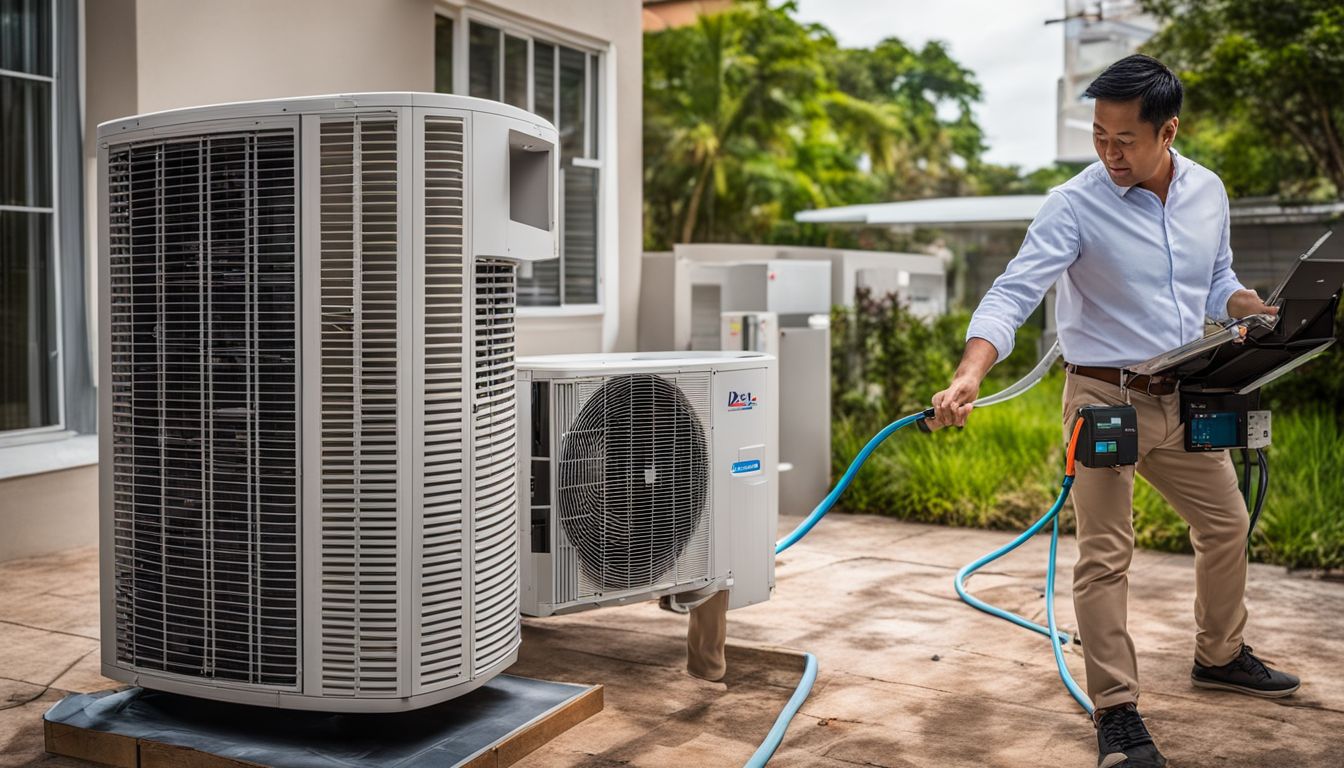
Check the warranty before you choose an aircon gas. A good warranty can save you money on repairs and replacement parts. If your air conditioner uses energy-efficient refrigerants, like those in inverter models, you might get a longer warranty.
This is because these systems are made to use less power and last longer.
Make sure a certified professional installs your HVAC system to keep the warranty valid. Proper installation by an expert also helps protect your home’s things from moisture damage.
Now let’s dive into comparing R-410A and R-22 Aircon systems for a deeper understanding of which is best for your needs.
Comparing R-410A and R-22 Aircon Systems: An In-Depth Analysis
When selecting aircon gas, the comparison between R-410A and R-22 is crucial for informed decision-making. Below is an in-depth analysis presented in an HTML table format.
| Aspect | R-410A Aircon Systems | R-22 Aircon Systems |
|---|---|---|
| Ozone Depletion Potential (ODP) | R-410A has zero ODP, making it environmentally friendly. | R-22 has a higher ODP, contributing to ozone layer depletion. |
| Global Warming Potential (GWP) | R-410A has a higher GWP compared to other refrigerants. | R-22’s GWP is also significant, leading to climate change concerns. |
| Energy Efficiency | R-410A systems are generally more energy-efficient. | R-22 systems have lower energy efficiency ratios (EER). |
| Performance | Operates at a higher pressure, offering better cooling capacity. | Provides adequate cooling but at less efficient rates. |
| Legality and Availability | Widely available and legal to use in new air conditioning systems. | Phased out due to environmental regulations, reducing availability. |
| Cost Implications | May have higher upfront costs but lower long-term expenses. | Lower initial cost but potential for increased maintenance expenses. |
| Retrofitting | Systems cannot be retrofitted from R-22 without significant modifications. | Existing R-22 systems are often not compatible with R-410A without retrofitting. |
| Longevity and Durability | Designed for newer systems, promising extended lifespan. | Older systems might be less durable and require more frequent replacements. |
| Impact on System Hardware | Requires stronger and more robust components due to higher pressures. | Compatible with older systems built for lower operating pressures. |
Aircon systems need careful selection of refrigerants, considering R-410A and R-22’s different attributes. Each refrigerant’s impact on environment, efficiency, and overall system performance must be weighed carefully.
Examining Different Types of Air Conditioner Units
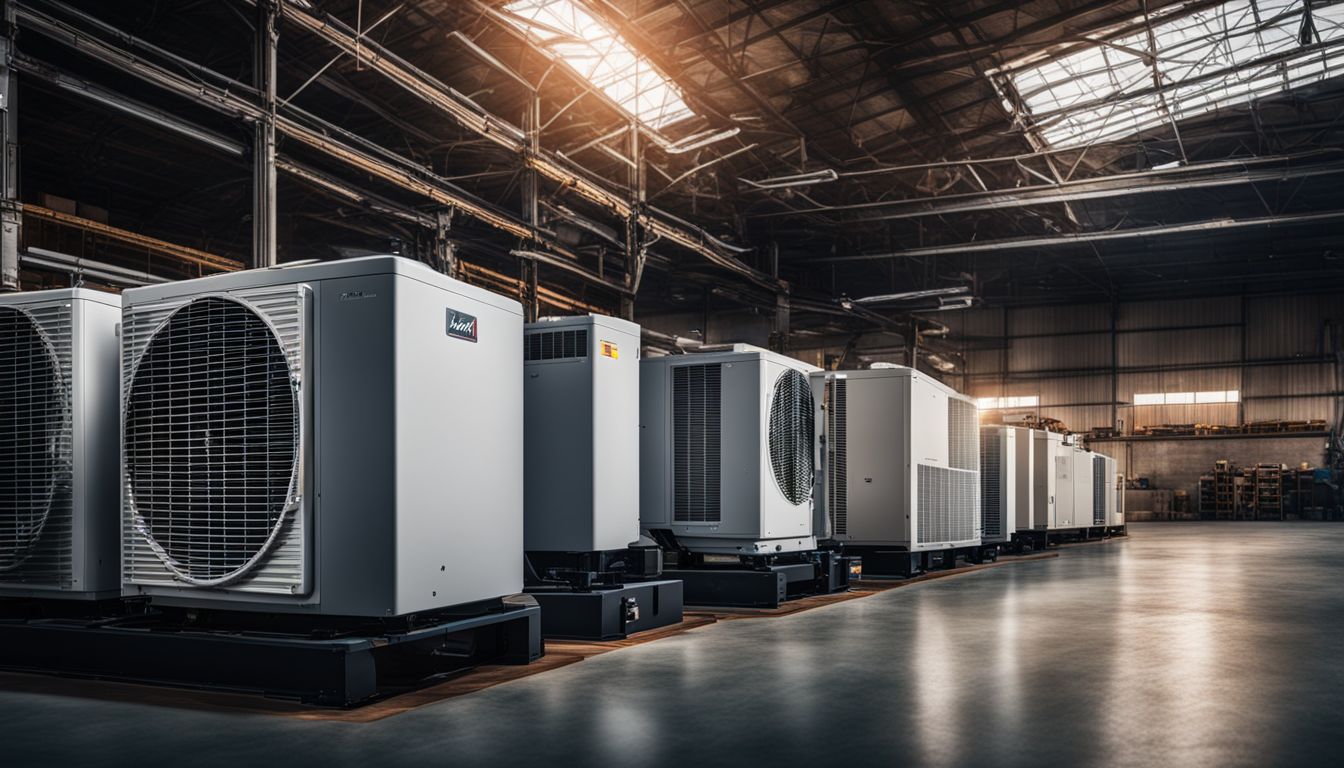
Delve into the diverse world of air conditioning units, where each system is tailored to suit specific spaces and cooling requirements. From sleek split-systems to robust central units, we unravel the options to help you make an informed choice for your comfort needs.
Window Type Air Conditioner
Window-type air conditioners are a smart pick for small spaces. They offer easy installation and simple upkeep.
- Fit well in small rooms and apartments, making cooling more accessible where space is limited.
- Can be mounted on most windows, which means no floor space is taken up.
- Maintenance involves regular filter cleaning that you can do without professional help.
- Are targeted coolers, effectively lowering temperatures in specific areas of your home.
- Often cost less than larger units, making them an economical choice for budget – conscious buyers.
- Work quietly compared to larger systems, providing comfort without a lot of noise.
Central Air Conditioner
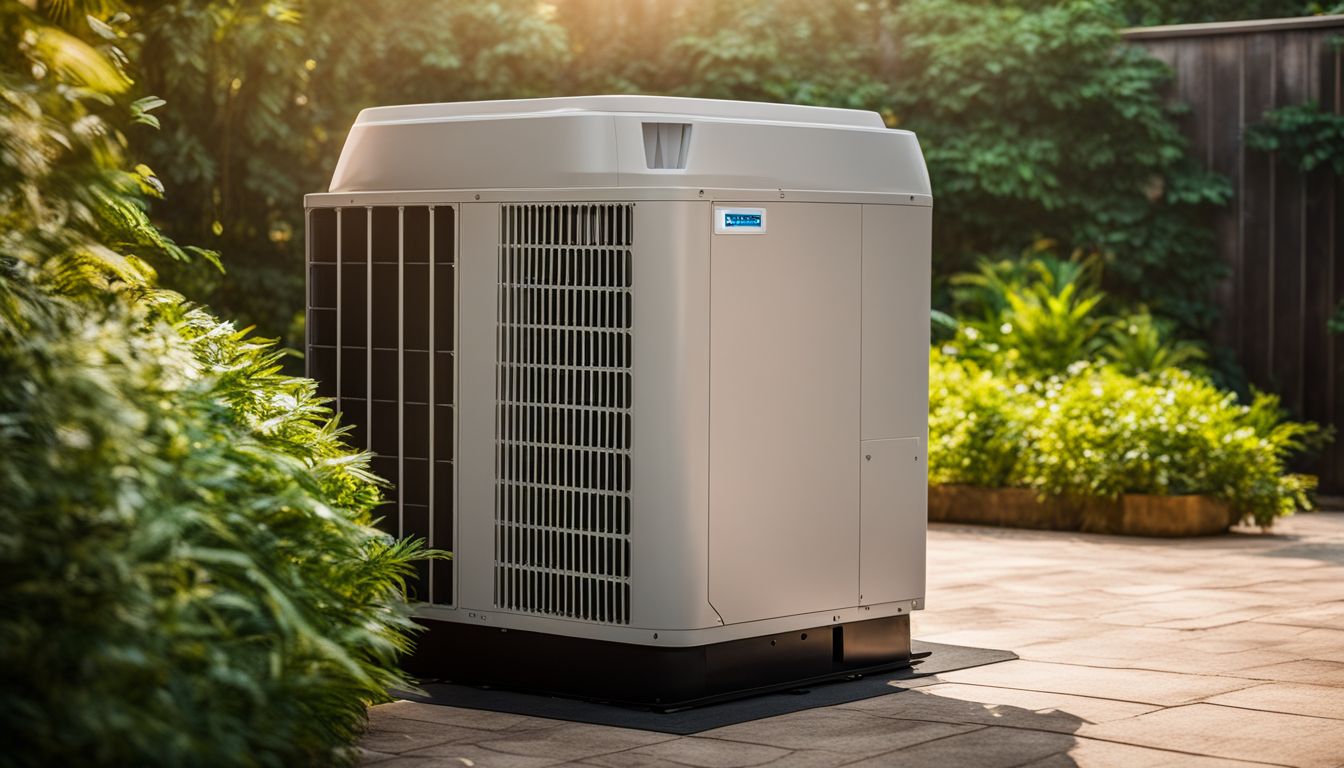
Central air conditioners make homes comfortable by cooling the entire space. They’re a popular choice for large areas or entire houses.
- A central air conditioner works on heat transfer. It removes hot air from inside and brings in cool air.
- This system has two main parts: an indoor unit and an outdoor unit.
- The indoor unit often connects to your ductwork. It cools and circulates air through vents in your rooms.
- Outdoor units house the compressor and condenser coil. These transfer heat outside your home.
- Central air conditioning can be more energy efficient than other types. It cools multiple rooms at once, not just one area.
- They may cost more upfront but can save money on bills. Efficient systems use less energy to keep large spaces cool.
- Professional installation is important for these systems. Proper setup ensures they work well and last long.
- Maintenance is key for central ACs to run efficiently. Regular checks can prevent costly repairs later on.
- Central systems also help maintain good indoor air quality. Filters in the ducts trap dust and other particles.
Ductless Mini Split-type Air Conditioner
- These air conditioners let you change each room’s temperature with digital thermostats.
- They run quietly, so you won’t be disturbed by loud noises.
- You can turn them on or off with remote controls from anywhere in the room.
- Timers help you set when the air conditioner turns on and off, saving energy.
- Smart features let you connect to the internet and control the air conditioner with your phone.
- Advanced filters, like HEPA filters, catch tiny dirt particles and keep your air clean.
- You must pick the right size for each room to save energy and stay comfortable.
- Inverter models adjust their speed to use less power and cost less over time.
- A professional must install them properly for them to work best and last long.
Portable Air Conditioner
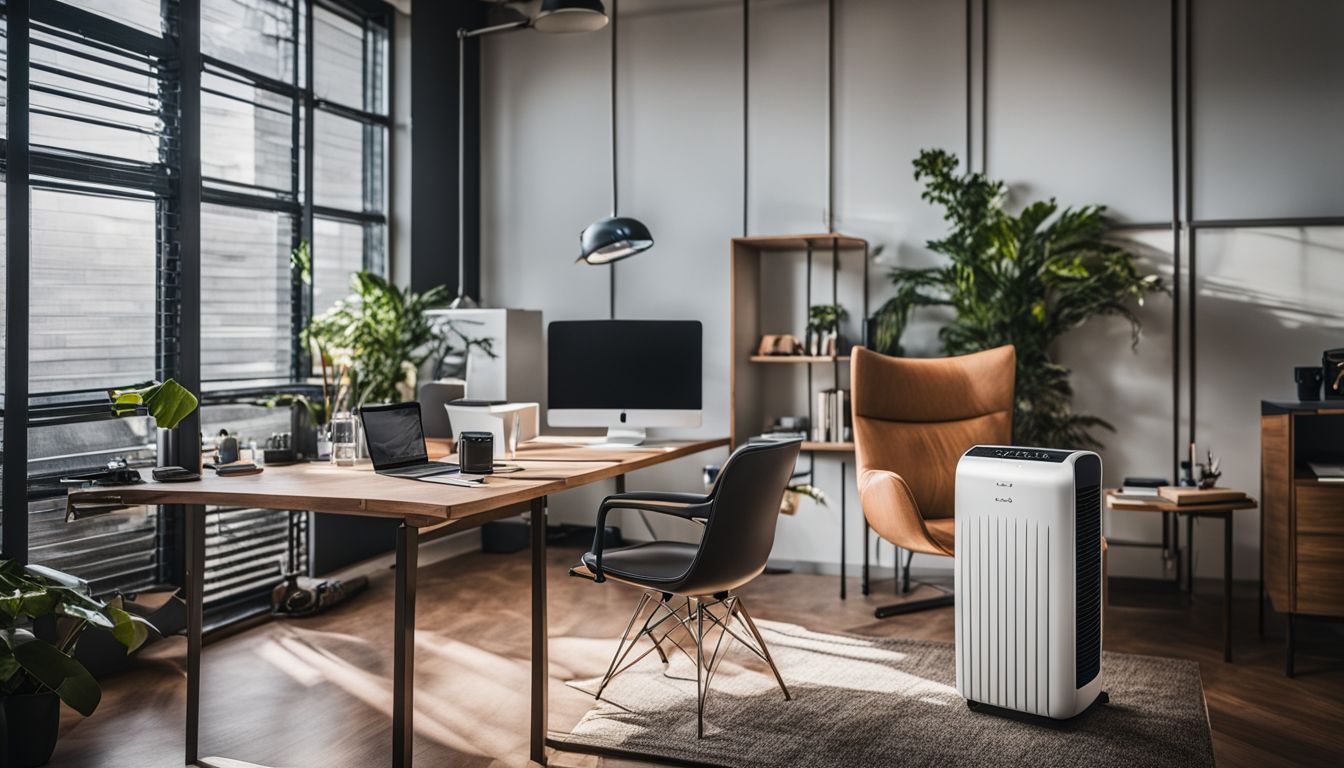
Transitioning from the versatile ductless mini-split type air conditioner, we now explore another dynamic cooling option: the portable air conditioner. Portable units are unique as they provide a flexible solution to cool any room in your home.
- Easy to move around, these air conditioners come with wheels.
- They plug into standard electrical outlets, making installation simple.
- No permanent installation is required, unlike other aircon systems.
- Set up is quick and you can start cooling right away.
- You control where the cold air goes by moving the unit.
- Perfect for rooms where window or split – system units can’t fit.
- Often comes with multiple functions such as dehumidifiers and air purifiers.
- Self – contained design means no external condensing units are needed.
- Less invasive than installing a full central system or ductwork.
- Helps you focus the cooling on high heat areas like kitchens or sunrooms.
- Uses a hose to expel warm air through a window or a hole in the wall.
- Many models offer heating options too for year – round comfort.
- Some versions improve airflow and clean indoor air with built – in filters.
- Saves you money by not needing to cool unused spaces all day long.
Evaluating Your Specific Needs
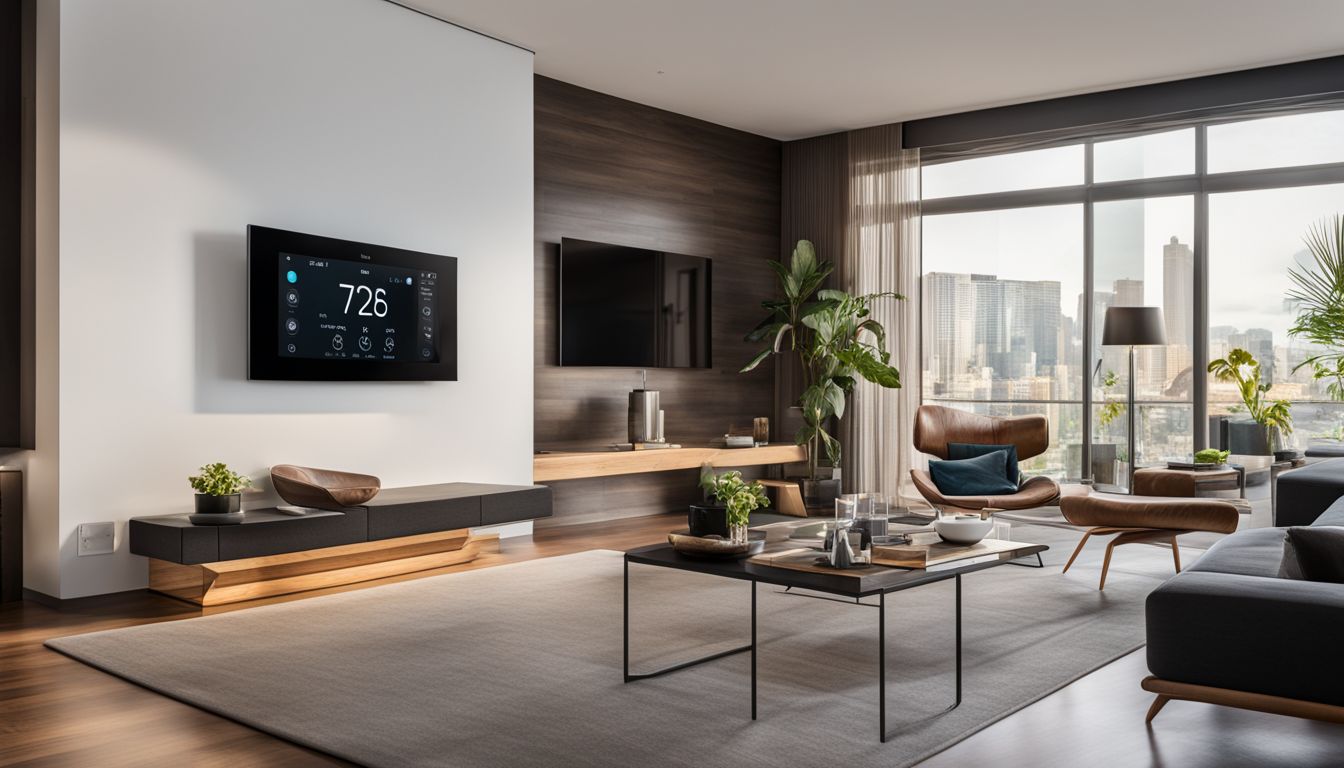
To tailor your air conditioning choices, a thorough evaluation of personal requirements is crucial. This step ensures that your chosen aircon gas aligns with both the characteristics of your living space and the demands placed upon it by lifestyle factors and appliance usage.
Assessing the Size of the Room You Want to Cool
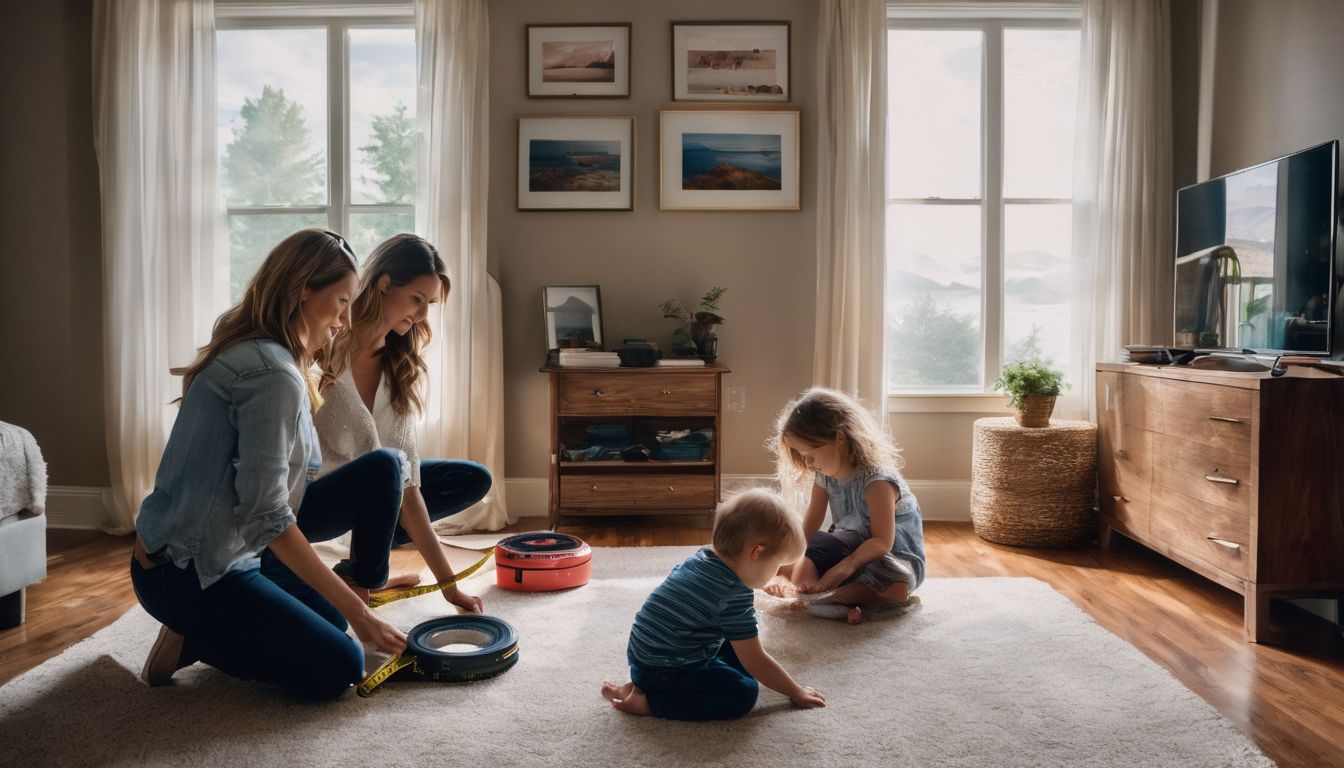
Choosing the right air conditioner starts with knowing your room size. This ensures proper cooling without wasting energy.
- Measure the room’s length and width. Multiply these numbers to get the square metreage.
- Check ceiling height. Taller rooms need more power to cool.
- Look at window size and direction. Bigger windows or those facing the sun add heat.
- Consider insulation quality. Better insulation means you’ll need less cooling power.
- Factor in room use. Kitchens or crowded spaces may require more cooling.
Considering Heat Generated by Your Home Appliances
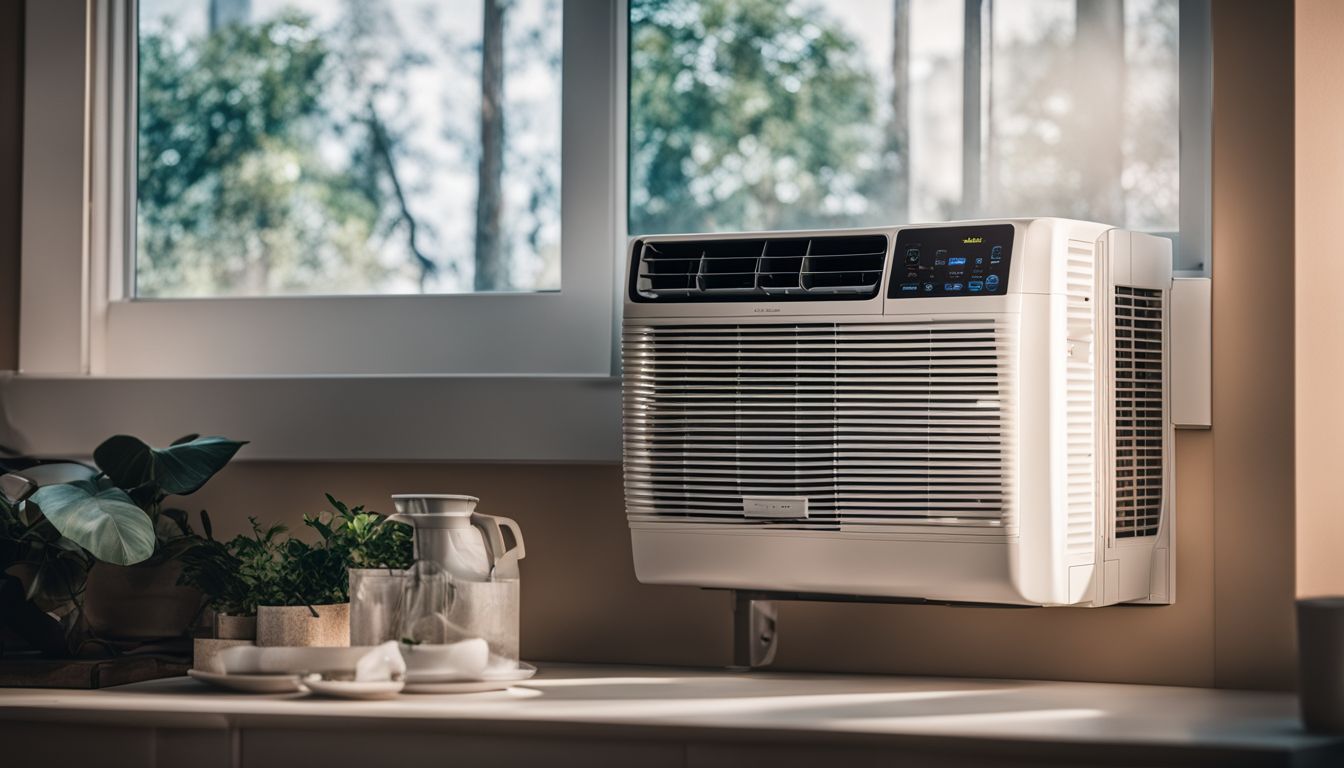
Your home appliances add extra warmth to your rooms. Things like ovens, TVs, and computers generate heat. This makes your air conditioner work harder to cool down the space. You need a good AC system that can handle this added heat without using too much energy.
Choose an air conditioner with enough power to not only cool the room but also tackle the extra heat from appliances. Think about getting one with a high energy efficiency rating to save on electricity bills.
Now let’s check how big your air conditioner should be for your needs.
Checking the Size of Your Air Conditioner
Measure the room before picking an air conditioner. A unit too small won’t cool properly, while one too large can leave air damp and waste energy. Use factors like room dimensions, how much sun hits the area, insulation quality, and occupancy to decide on AC size.
This ensures comfortable temperatures and good humidity control for a peaceful sleep environment.
To choose well, consider heat exchange efficiency between the indoor evaporator coil and outside air. Efficient systems maintain desired temperatures without overworking. Next focus on how your home appliances affect indoor heat levels.
Tips for Maximising Your Air Conditioner’s Efficiency
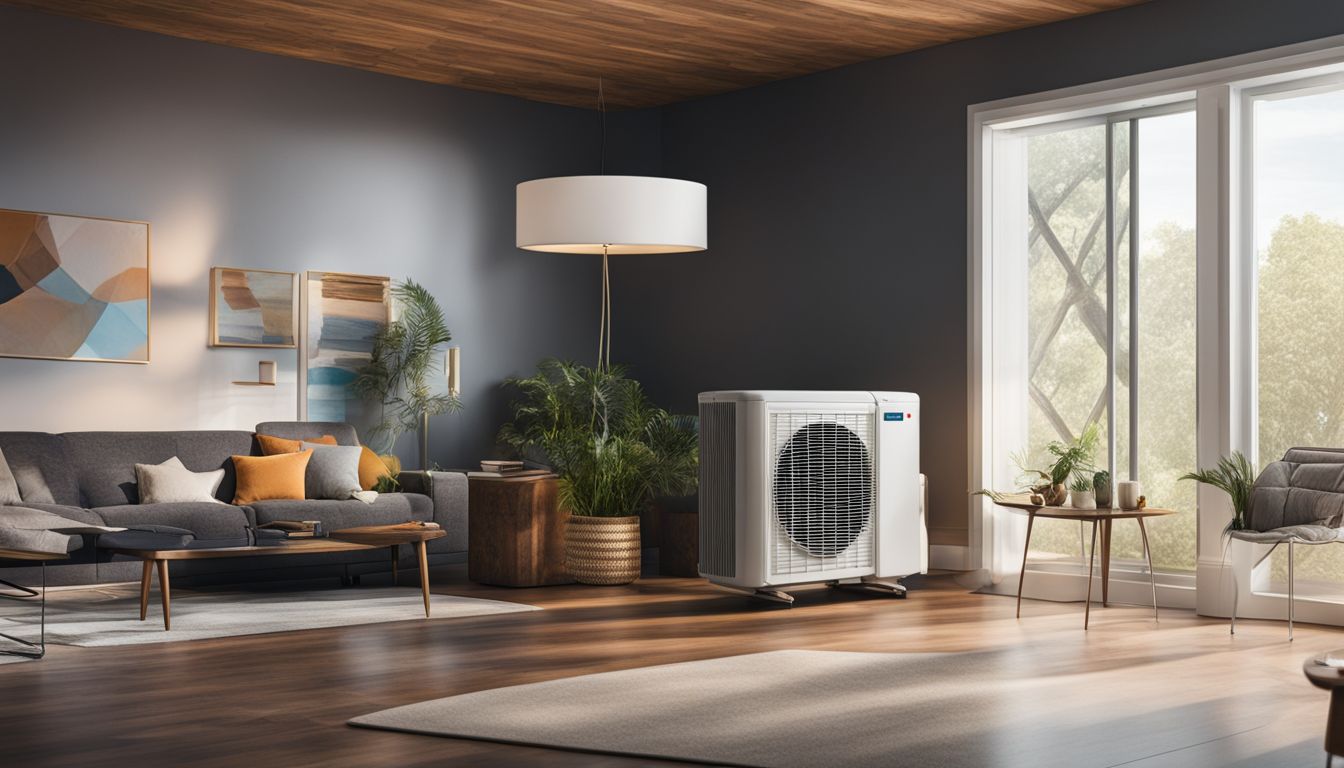
- Service your air conditioner regularly to prevent increased energy consumption.
- Clean or change filters often to ensure clean air flows smoothly.
- Seal any leaks in windows and doors to keep cool air inside.
- Use ceiling fans to spread the cold air around the room more effectively.
- Install proper home insulation to reduce the need for constant cooling.
- Set a higher temperature on your thermostat when you are not home.
- Close curtains during the hottest part of the day to block out sun heat.
- Match the size of your AC unit to the room it’s cooling for efficient energy use.
- Avoid placing lamps or TVs near the thermostat as they can affect its readings.
Conclusion
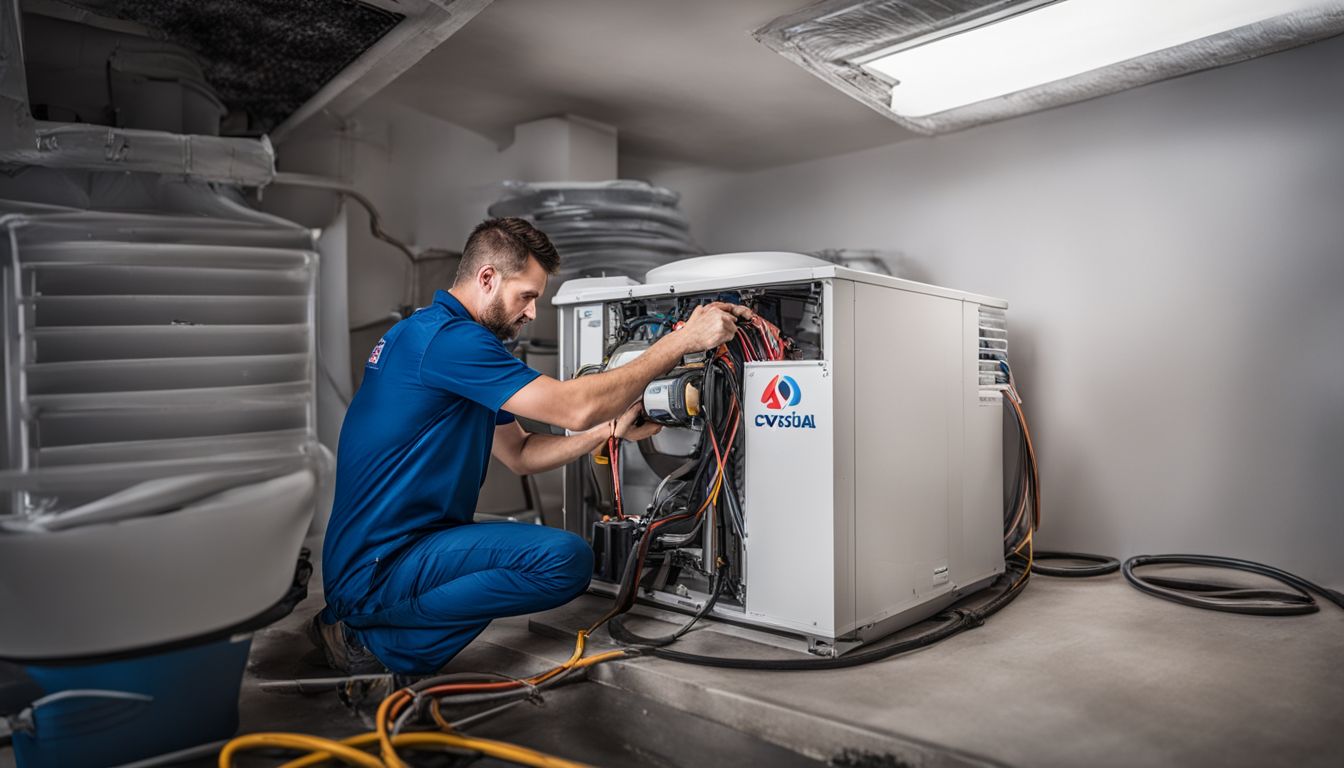
Choosing the right aircon gas can greatly improve your comfort and wallet. Consider efficiency, cost, and environmental impact before deciding. Consult with a pro to find the perfect match for your space.
Regular maintenance will ensure peak performance. Make a wise choice for cooler days ahead!
FAQs
1. Why is the type of gas in air conditioners important?
The type of gas used affects the air conditioner’s efficiency, impact on the environment, and how well it cools or heats your space.
2. How do gases in aircons relate to climate change?
Gases released from aircons can contribute to the greenhouse effect, releasing greenhouse gases into the atmosphere which worsen effects of climate change.
3. Can choosing the right gas for my aircon help save energy?
Yes, certain gases are designed for energy-saving and can reduce energy consumption, helping to cut down electricity bills and carbon emissions.
4. What should I consider about gas when buying a portable or split-system air conditioner?
Check if the chosen gas supports heating and cooling efficiently without harming the environment or contributing too much to greenhouse gases.
5. How does proper refrigerant choice affect indoor air quality?
Choosing suitable refrigerants along with features like HEPA filtration ensures cleaner indoor air by reducing PM 2.5 levels and stopping mould growth.
6. Are there any health benefits to selecting a specific type of gas for heat pumps or reverse-cycle air conditioners?
Yes, using eco-friendly gases that reduces energy consumption also lowers heat-related illnesses by maintaining consistent temperature control inside your home.
